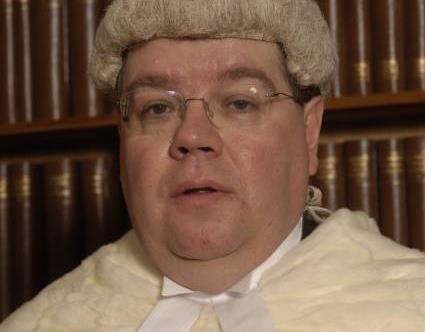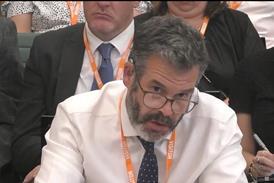Solicitors’ retainers do not contain an implied term that their client will act in good faith, the Court of Appeal has ruled in an appeal by a London law firm after its £3m claim against a former client was reduced to just £21,000.
Litigation firm Candey challenged a High Court ruling that the vast majority of its case against Palestinian banker Basem Bosheh and solicitor Amjad Salfiti has no real prospect of success.
The firm sued Bosheh for alleged fraudulent misrepresentation, deceit and breach of a duty of good faith after he and his son settled a claim brought by Saudi businessman Sheikh Mohamed Bin Issa Al-Jaber, who alleged fraud, knowing receipt and conspiracy, on a ‘drop hands’ basis before trial.
Candey – which also claimed Salfiti induced Bosheh’s alleged breach of the retainer – argued that Salfiti and the Boshehs conspired to agree a settlement that deprived it of fees of around £1.2m, relying heavily on both privileged and confidential material.

The firm said its retainer was subject to implied terms, including that the Boshehs ‘would at all times act in good faith’, but the High Court ruled in January that ‘a retainer between a solicitor and client is not subject to a duty of good faith’. Candey took the case to the case Court of Appeal, which said that there is no ‘cogent basis for the implication of such a term’
‘There is no authority that supports the proposition that, when retaining a solicitor to act for him or for her, the client owed that solicitor a duty of good faith,’ Lord Justice Coulson said. ‘The absence of authority is perhaps unsurprising: it is a startling concept. Many would say that, if a duty of good faith was applicable at all, it would arise the other way round and be owed by the solicitor to the client.’
The judge also rejected the suggestion that a duty of good faith arose because Candey was instructed under a conditional fee agreement (CFA), saying that ‘beyond the question of remuneration … there is no relevant distinction between a CFA and an ordinary retainer’.
Coulson said the retainer ‘assumed that it was quite possible that Sheikh Mohamed would win his claim – that he would prove that the Boshehs had acted fraudulently – because the CFA provided that, if that happened, Candey would recover nothing’. He added that, on Candey’s construction, the CFA ‘would become a guaranteed fee agreement’ as the firm would recover its costs if their clients were telling the truth, but would also ‘win’ if they were not because of the breach of the good faith obligation.
The firm’s bid to rely on confidential material which was sent to it after it terminated its retainer, and on privileged material which was provided during the course of preparing the Boshehs’ defence to the claims made by Sheikh Mohammed, was also dismissed.
Coulson said the suggestion that ‘if a client behaves in such a way that he gives his lawyer a cause of action against him, that may amount to an implied waiver of privilege’ was wrong and would, if accepted, ‘inevitably impact on the solicitor-client relationship’.
He held that Candey’s attempt to recover their costs against Bosheh and Salfiti, based on Bosheh’s bank statements, ‘does not trump the public interest in excluding improperly obtained evidence’.
Candey said in a statement that it plans to take the case to the Supreme Court, adding: ‘It is disappointing that practising lawyers can have no course of redress, even when they are the victims of fraud, because they cannot rely on crucial evidence to make out their case. No lawyer should have to consent to being deceived. No client should be able to obtain services by deception.
‘The court considered risk as a matter of contract without recognising the longstanding principles in the tort of deceit. This is even more startling for contingent fee arrangements, where lawyers may be dissuaded from taking risk if their rights of redress are severely limited. We hope that the Supreme Court recognises that the decision is respectfully wrong and such erosion of lawyers’ rights will have an impact on their willingness to act for impoverished meritorious clients, contrary to the public interest.’
This article is now closed for comment.



























14 Readers' comments